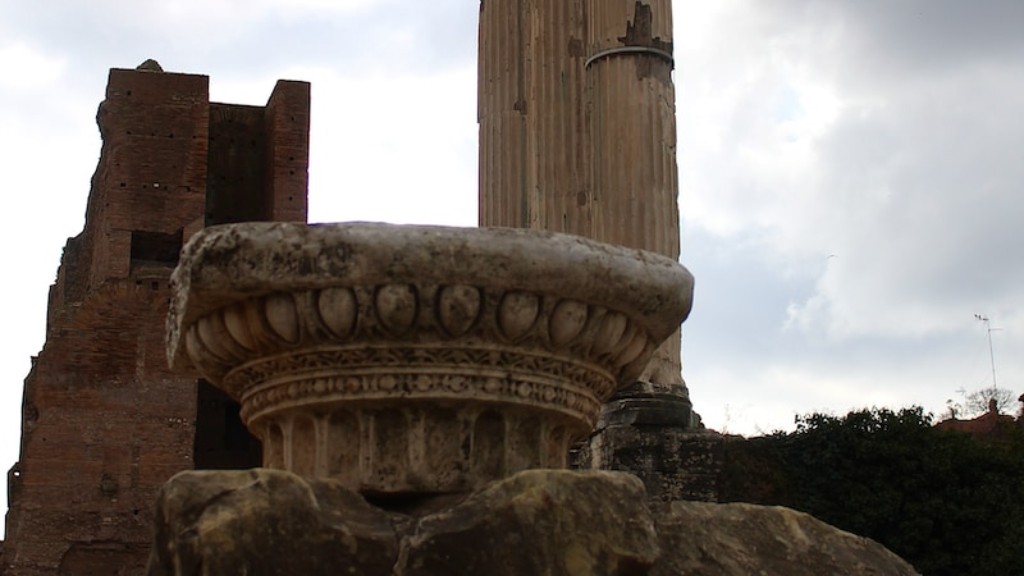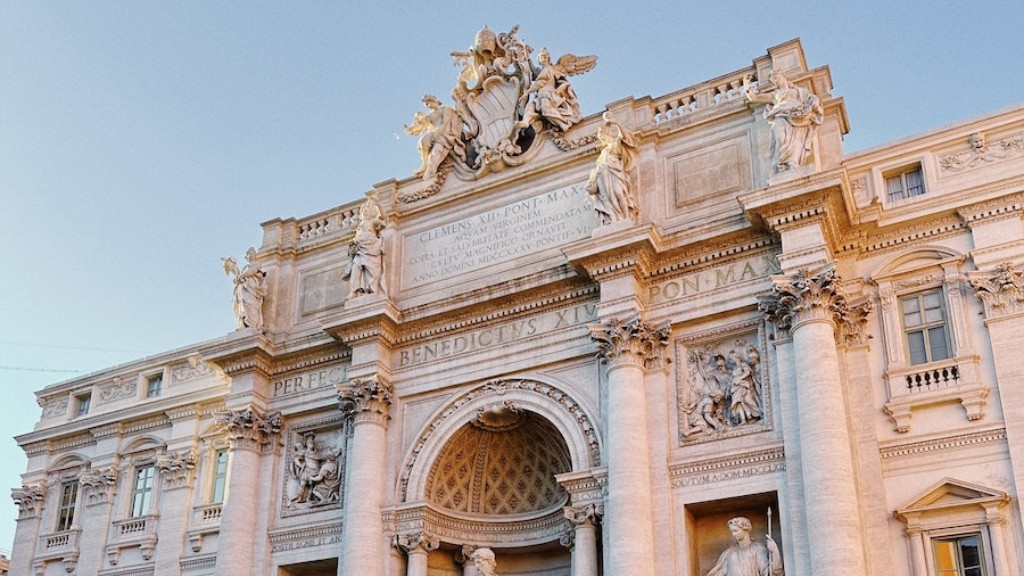Italian Cuisine Influences
Italian cuisine has been around for centuries, with its earliest roots found in the era of Ancient Rome. The original diet of Ancient Romans was one of simplicity, with lavish meals mainly reserved for religious feasts or grand events. Meals were typically based around seasonal vegetables, fruits, nuts, grains, and other ingredients readily available to them. Ancient Romans had a wide variety of recipes and flavors available to them, but the main dishes were usually made of a combination of local ingredients, such as legumes, grains, and eggs.
Roman Influences On Modern Italian Cuisine
Although the ingredients and cooking techniques of Italian cuisine have changed significantly over the centuries, Roman influences can still be seen in modern Italian cooking. Today, Italian cuisine incorporates many of the same techniques and ingredients used by the Ancient Romans. For instance, the use of olive oil, garlic, and herbs is a direct influence from the Roman culture. Additionally, the influence of Roman culture can also be seen in the preparation of pasta and pizza, both of which are typical Italian dishes.
Would Ancient Romans Enjoy Italian Cuisine?
Given the close ties between time-honored Italian cooking techniques and Ancient Roman culture, it is likely that Ancient Romans would have enjoyed many of the dishes served in modern Italian cuisine. However, they likely would not have enjoyed the same flavors as modern-day Italians. The ingredients and cooking methods used by the Roman culture were very different than those used today. For instance, the Roman diet was spicier than today’s Mediterranean-style Italian diet, and many of the ingredients used by the Ancient Romans are not commonly found in modern-day Italian cooking.
Italian Culinary Expansion
The global spread of Italian cuisine began in earnest in the middle of the 19th century. This was largely due to the emigration of Italians to other parts of the world, particularly North and South America. As these immigrants brought their culture and cuisine with them, certain aspects of Italian cuisine, such as the use of tomato-based sauces, began to make their way into the culinary traditions of other regions. The result has been a vast expansion of Italian cuisine around the world, with elements of the Roman culture becoming increasingly common in many different cuisines.
Modern Italian Recipes
Modern Italian recipes are often considered to be more complex and flavorful than their Roman counterparts. This is largely due to the fact that Italian cuisine has been influenced by many different cultures over the centuries. This has allowed Italian dishes to incorporate several different flavors and cooking techniques, resulting in a vibrant and varied cuisine. Moreover, modern Italian cooking also features a wide variety of regional specialties, each with its own unique flavors and ingredients.
Italian Cuisine Creates Connections
Italian cuisine is renowned for its ability to bring people together from all over the world. Drawing upon a variety of national and regional influences, Italian food offers a unique fusion of flavors, textures, and aromas. This wide variety of flavors and aromas makes it easy for people to connect with one another over a shared meal. Whether it is a casual dinner or a formal dinner party, Italian food has the ability to bring people together in an intimate and convivial atmosphere.
Italian Transitions In A Crucial Period
The food industry and the culinary industry have undergone significant changes in recent years. New technology and an increased demand for convenience foods have led to increased innovation in the cuisine of many countries. However, Italian cuisine remains largely unchanged, drawing upon centuries of tradition. This continued reliance on tradition and authenticity has enabled Italian cuisine to remain relevant in the modern era.
Using Regional Italian Ingredients
Italian cuisine is known for its use of fresh and local ingredients. Each region of Italy has its own unique set of flavors and ingredients, making Italian cuisine one of the most diverse and adaptable types of food. Italian dishes often focus on a combination of flavors and textures, making use of both local and imported ingredients. This fusion of flavors has enabled Italian cuisine to become popular throughout the world.
Italian Cuisine Becomes Fusion
In recent years, new culinary trends have emerged, bringing together elements from different cuisines to create exciting fusion dishes. Italian cuisine is no exception. As the global popularity of Italian dishes continues to increase, so too has the willingness to experiment with traditional recipes. This experimentation has resulted in the creation of interesting and innovative dishes that combine the best of both traditional and modern cooking methods.
Regional Italian Dishes
From pasta and pizza to a variety of regional specialties, Italian cuisine has a great deal of diversity. Each region has its own unique set of flavors and ingredients, making it possible to create a variety of regional dishes. These regional dishes often incorporate ingredients native to the region and traditional methods of preparation, resulting in dishes that are distinctly Italian.
Traditional Italian Recipes
Italian cuisine is renowned for its reliance on traditional recipes. Many Italian recipes have been passed down from generation to generation, ensuring that the flavors and textures remain unchanged. These recipes rely heavily on fresh and local ingredients, as well as on simple techniques and methods of preparation. This adherence to tradition has enabled Italian cuisine to remain as one of the most beloved cuisines in the world.


